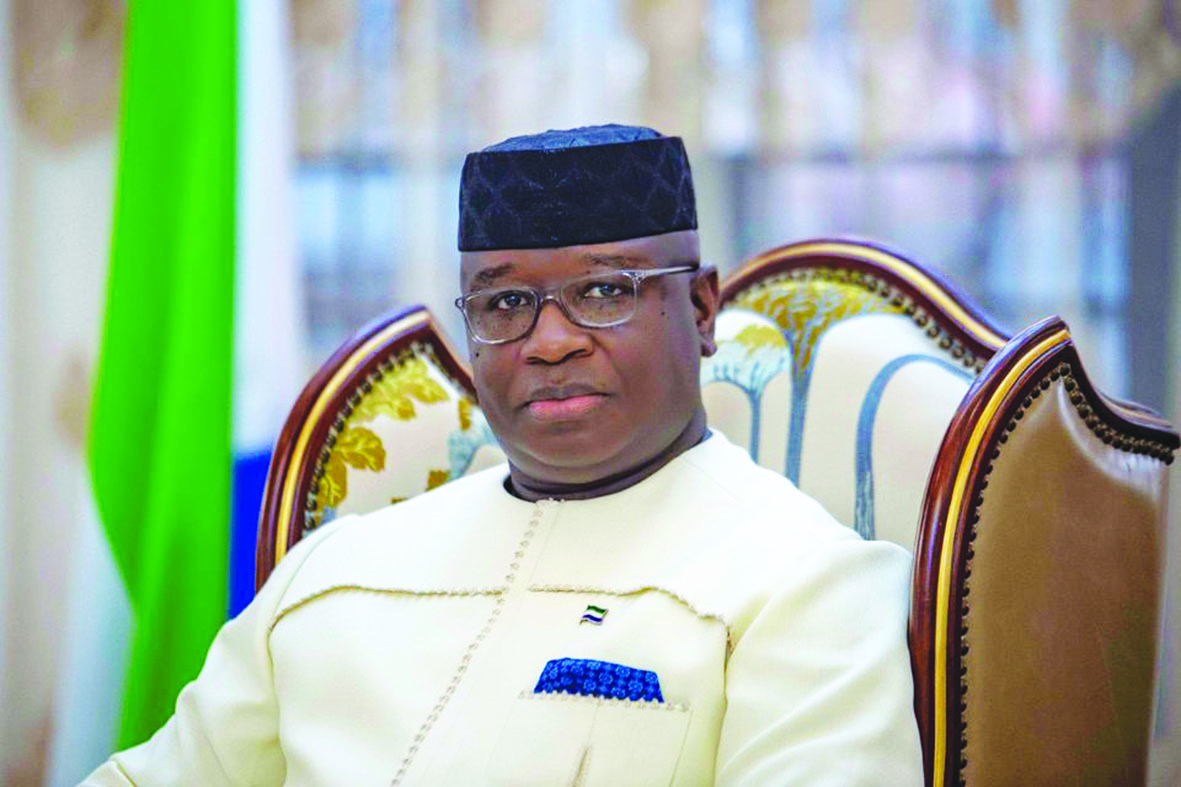Five months after President Julius Maada Bio was elected to a second five-year term by the people of Sierra Leone, he found himself in the unsettling but not entirely unexpected position of having to put an end to a coup d’état in November 2023. Twenty eight years ago, when the country was in ferment, the then military officer of just 33 had seized power and ran a dictatorship, which he voluntarily allowed to return to democratic rule after only 73 days, demonstrating a dramatic change of heart.
As unlikely as it may seem, President Bio named the opposition leader of the All People’s Congress (APC), former President Ernest Bai Koroma, as the purported mastermind and ordered his arrest and prosecution. Following pleas for clemency from diverse personalities including brother African leaders from the Economic Community of West African States (ECOWAS), President Bio allowed the former President to be granted asylum in Nigeria, an inevitable freedom. Again, President Bio once more demonstrated his huge heart and remarkable statesmanship. He strongly believes that as a leader, you should choose “reconciliation and dialogue” over using force to resolve any difficult situation with the opposite party. This, he says, is the only way to have a decent world devoid of bitterness and rancor.
He has repeatedly shown this admirable trait and quality of character in managing the affairs of his beloved Sierra Leone. During a recent five-day official visit to the People’s Republic of China, President Bio’s extraordinary humility and humanity were on full display during a special prime-time TV interview. He disarmingly told his Chinese viewers that their country was a “dependable ally”. President Bio praised the transformational leadership style of Chinese President Xi Jinping as “worthy of emulation” and cited the 52-year bilateral relationship between China and Sierra Leone as a “win-win” model for other African nations.
Completely devoid of airs, President Bio recollects asking the Chinese President how he was handling the enormous responsibility of providing for and overseeing 1.2 billion people, when he was struggling to manage a little over eight million citizens. He received a lifetime lesson. “You have to start somewhere and be consistent,” the Chinese leader responded. “You have to start with roads and bridges. Infrastructure is so critical to development…”
President Bio readily recalls the key lessons he learned from President Jinping’s counsel and how he has been implementing it in his own country. He cites the Chinese-funded Juba Bridge in rural Sierra Leone as one example of how it is fostering development in the area by bringing people together and facilitating significant advancements in all areas of human interaction, including trade, business, socio-cultural activities, and political involvement.
President Bio’s New Direction Agenda and the new Medium-Term Development Plan 2024–2030 centre on infrastructure development as a means of enabling millions of his people to escape poverty, a feat already accomplished by the Chinese leadership. President Bio’s public appeal for his nation’s “devoted public servants, to answer the call of duty with steady resolve and dedication in operationalizing the National Development Plan” is therefore not out of place.
He never forgets that the buck stops squarely at as his desk. “If I as the Head of our Government succeed, it is a victory for us all. If I falter, we all face the peril of unfulfilled potential,” he says.


